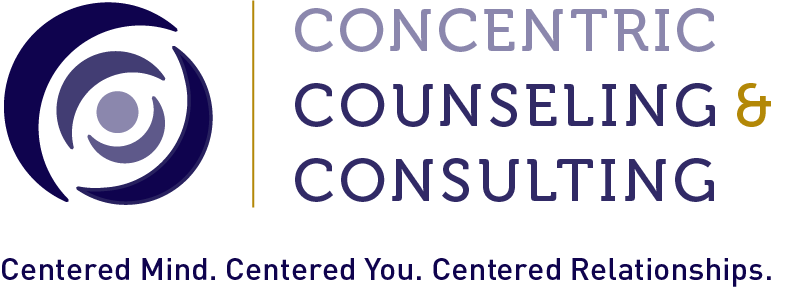Your Voice Matters: Honest Discussion about Mental Health and Addiction
/By Concentric Counselor Jennifer Larson, LCPC, NCC
It’s been about 3 months since Concentric Counseling & Consulting hosted its first On The Table 2017 conversation, and I am still impacted by the experience. First let me backpedal to how I first learned about The Kennedy Forum, one of the co-sponsors of On The Table.
It was the Fall of 2015 and I was having a conversation with my friend Caroline McAteer about various social issues and she had asked me if I heard of The Kennedy Forum. Much to my chagrin, I had sheepishly told her that I hadn’t. She told me about The Kennedy Forum’s mission and details of their annual meeting. I was instantly intrigued and had to dig in.
Of the many things learned, one of them was Patrick Kennedy of The Kennedy Forum and his involvement with The Mental Health and Addiction Parity Act of 2008; he is still putting forth advocacy efforts to have The Act enforced on a national level. I remember the buzz just before The Act went into federal law as I knew all too well the red tape and consequences people, including my own therapy clients, faced with limited mental health sessions imposed by insurance companies.
Fast forward to Spring 2017, and I learned about On The Table initiatives (co-sponsored by The Kennedy Forum and The Chicago Community Trust). Once again, I was intrigued. On The Table initiative is about having people host open and honest conversations about mental health and addiction in effort to #BreakTheSilence and eliminate the stigma around mental illness and addiction that still greatly exists.
As a counselor, I regularly encourage my clients to use their voice whether it is to share, increase vulnerability or intimacy, honor or advocate for oneself, and to work through the shame that often plagues people with mental illness and addiction.
The focus of psychotherapy with my clients typically entails understanding and resolving challenges with one’s intrapsychic and interpersonal relationships (represented by inner concentric circles, hence the name Concentric) versus the larger, social systems (outer concentric circles). Participating and joining forces with other hosts to help end the stigma associated with mental health and addiction while giving people an opportunity to use their voice fit Concentric’s mission with helping others to your their voice – but this time on a macro level.
On May 16, 2017, the therapists at Concentric Counseling & Consulting hosted its first On The Table 2017 conversation in Millennium Park, across the street from our office. It was an unseasonably warm and windy day, and our topic was "Your Voice Matters: Mental Health and Addiction. Honest Discussion About Why More People Don't Seek Out Help."
We had an incredibly diverse group of people who actively participated. It was such an honor to hear people’s stories and ideas about why more people don’t seek out help. So many stories and barriers were shared. Common themes emerged and were extracted. Follows are some of the common themes people described that either prevented them or others they know from seeking services:
Stigma, embarrassment, and shame. Seeking help is seen as a weakness. What will my family and friends really think about me? Will I be seen as a ‘nutcase?’ Denial about having a problem or my ego getting in the way.
Financial burden and obligations. Lacking financial resources all together. Treatment is a privilege for only those who can afford it. Lack or poor insurance coverage. All of the convoluted layers to insurance coverage.
Lack of information and available resources on how and where to find mental health and addiction services. Example given was local university offered free counseling services to its students but was not aware of services until his senior year of college. Not knowing how to access services or where to start. Location and other barriers to gaining access to solid services.
Cultural barriers and roadblocks, including families of certain cultures not supportive of mental health services. Experience with providers who lack cultural, gender identity, and sexual orientation competence. Religious barriers and lack of supports within religious communities.
It is a reminder to all of that us that suffering from mental illness and/or addition is hard in of itself, not to mention having to endure additional barriers that get in the way of seeking and accessing help. Some of the solutions shared were not only to address or remove the aforementioned barriers and roadblocks, but to focus on the equity of mental and physical health.
People remarked how it is much easier and more acceptable to talk about their physical ailments, but not their mental health. Let’s look at people wholistically and give the mental health side the same due attention and respect. Another solution shared was to target childhood prevention.
One of the guests remarked in early childhood, we learn the importance of daily hygiene, such as brushing our teeth daily. Why not introduce conversation around mental health care at an early age or make mental health education mandatory in schools. Also, when providing education on mental illness and addiction, don’t use extreme or scare tactics, such as the “This is Your Brain” drug campaign did in the 1980s. Guests remarked it only silences people more. Instead, provide a spectrum of information that can resonate with or speak to a variety of people across all ages and cultures.
My hope is that the information shared from our diverse group in Chicago can continue to be shared with others. And importantly, inspire all of us to participate in more active conversations about mental health and addiction whether it’s in your home, at work, in your community or as an On The Table host. Because Your Voice Does Matter!




